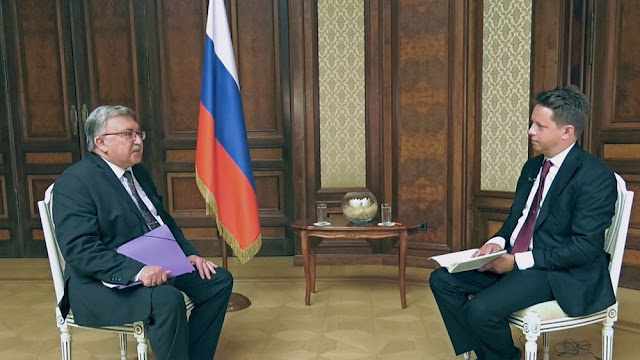In a passionate and urgent call to action, Peter Obi, the former governor of Anambra State and the Labour Party’s presidential candidate in the 2023 general elections, has urged the Federal Government of Nigeria to declare a comprehensive and all-encompassing national war on insecurity. Speaking in response to the worsening security situation across the country, Obi emphasized that the pervasive threats of banditry, terrorism, kidnapping, and violent crime have reached unprecedented levels, necessitating immediate and decisive intervention. His statement, made on September 6, 2025, comes amid a series of high-profile abductions, including the kidnapping of a prominent traditional ruler in Kaduna State and the abduction of over 20 medical students in Benue State. Obi’s remarks underscore the growing frustration among Nigerians with the government’s inability to curb the spiraling insecurity that has left communities vulnerable and the nation on edge.
The Context of Nigeria’s Security Crisis
Nigeria, Africa’s most populous nation and a key economic powerhouse in the West African sub-region, has been grappling with multifaceted security challenges for over a decade. The country faces a complex web of threats, including the Boko Haram insurgency in the Northeast, banditry and cattle rustling in the Northwest, separatist agitations in the Southeast, militancy in the Niger Delta, and a surge in kidnapping and violent crime across urban and rural areas. These issues have not only claimed thousands of lives but have also displaced millions, disrupted economic activities, and eroded public confidence in the government’s ability to provide safety and security.
The Northeast, particularly Borno, Yobe, and Adamawa states, remains the epicenter of the Boko Haram insurgency, which began in 2009. Despite military efforts to degrade the group’s capabilities, factions such as the Islamic State West Africa Province (ISWAP) continue to launch deadly attacks on civilians and security forces. According to the United Nations, over 2.2 million people remain internally displaced in the Northeast, with millions more requiring humanitarian assistance due to the ongoing conflict.
In the Northwest, states like Zamfara, Katsina, and Kaduna have become hotbeds of banditry, characterized by large-scale cattle rustling, village raids, and mass abductions. Armed groups, often referred to as bandits, have exploited the region’s vast ungoverned spaces, including dense forests, to establish operational bases. These groups have grown increasingly audacious, targeting schools, religious institutions, and even traditional rulers. The recent kidnapping of the Sabon Gida of Gatawa, a prominent traditional ruler in Kaduna, highlights the brazenness of these criminal networks.
The Southeast, home to the Indigenous People of Biafra (IPOB) and its armed wing, the Eastern Security Network (ESN), has seen a rise in separatist violence, including attacks on security personnel and government infrastructure. While IPOB denies involvement in some of these incidents, the region remains volatile, with frequent clashes between security forces and armed groups contributing to a climate of fear.
Kidnapping for ransom has emerged as a nationwide scourge, affecting both urban and rural areas. From the abduction of schoolchildren in the North to the targeting of travelers along major highways, kidnappers have capitalized on Nigeria’s porous security architecture to extort millions of naira in ransom payments. The kidnapping of over 20 medical students in Benue State, as referenced by Obi, is a stark reminder of the vulnerability of ordinary citizens, even those pursuing critical professions like medicine.
Peter Obi’s Call for a National War on Insecurity
In his statement, Peter Obi described the current wave of insecurity as a “national emergency” that demands a unified and aggressive response from the Federal Government. He argued that the situation has deteriorated to the point where piecemeal approaches and reactive measures are no longer sufficient. “It is time for the government to declare a national war on insecurity,” Obi stated, emphasizing that the fight against crime and violence must be treated with the same urgency and resources as a conventional war. He called for a holistic strategy that combines military action, intelligence gathering, community engagement, and socio-economic interventions to address the root causes of insecurity.
Obi’s call for a “national war” is not merely rhetorical. It reflects a growing consensus among Nigerians that the government’s current strategies have failed to deliver tangible results. He pointed to the recent abductions in Kaduna and Benue as evidence of the government’s inability to protect its citizens. “When traditional rulers, who are custodians of our culture and heritage, are kidnapped in broad daylight, and students pursuing their education are taken hostage, it is a clear indication that we are losing the battle against insecurity,” Obi said. He urged the government to mobilize all available resources, including security agencies, local vigilantes, and international partners, to confront the crisis head-on.
Obi also highlighted the economic implications of Nigeria’s insecurity. The persistent violence has disrupted agricultural activities, deterred foreign investment, and crippled the livelihoods of millions of Nigerians, particularly in rural areas. He noted that the food insecurity crisis, exacerbated by banditry and farmer-herder conflicts, has pushed millions into poverty and hunger. According to the World Bank, Nigeria’s poverty rate stood at 40% in 2024, with insecurity being a major driver of economic hardship. Obi argued that addressing insecurity is not only a matter of protecting lives but also of safeguarding the nation’s economic future.
The Government’s Response: Challenges and Criticisms
The Federal Government, under President Bola Ahmed Tinubu, has repeatedly vowed to tackle insecurity, but its efforts have been met with mixed results. The administration has increased funding for the military, deployed special task forces to troubled regions, and launched initiatives like Operation Safe Corridor to encourage the surrender of low-level insurgents. However, these measures have been criticized as inadequate in the face of the scale and complexity of the crisis.
One major challenge is the overstretched capacity of Nigeria’s security forces. The Nigerian Army, Police, and other agencies are deployed across multiple fronts, from counterinsurgency operations in the Northeast to anti-banditry campaigns in the Northwest and peacekeeping efforts in the Southeast. This has led to accusations of fatigue and low morale among security personnel, who often lack adequate equipment and training to confront well-armed criminal groups.
Corruption within the security sector has also been a significant obstacle. Reports of misappropriated funds, ghost soldiers, and the diversion of resources meant for counterinsurgency operations have undermined public trust in the government’s efforts. In 2023, a high-profile investigation revealed that billions of naira allocated for security operations were unaccounted for, prompting calls for greater transparency and accountability.
Furthermore, the government’s reliance on kinetic approaches—such as military operations—has been criticized for failing to address the underlying socio-economic factors driving insecurity. Poverty, unemployment, and lack of access to education have created fertile ground for criminality, particularly among Nigeria’s youth population. According to the National Bureau of Statistics, Nigeria’s unemployment rate was 33.3% in 2024, with youth unemployment significantly higher. Obi and other analysts have argued that without addressing these structural issues, the cycle of violence is likely to persist.
Obi’s Proposed Solutions: A Multi-Pronged Approach
In his statement, Peter Obi outlined a multi-pronged approach to tackling insecurity, emphasizing the need for both immediate and long-term measures. His recommendations include:
Strengthening Security Infrastructure: Obi called for increased investment in security infrastructure, including modern surveillance systems, drones, and communication technologies. He argued that Nigeria’s vast ungoverned spaces, particularly in the North, require advanced tools to monitor and disrupt criminal activities.
Community-Based Security Initiatives: Recognizing the limitations of centralized security forces, Obi advocated for the empowerment of local communities to play a role in their own security. This includes supporting vigilante groups like the Civilian Joint Task Force (CJTF) in the Northeast and strengthening traditional institutions to serve as early warning systems.
Intelligence-Driven Operations: Obi stressed the importance of intelligence gathering in combating insecurity. He urged the government to invest in training and equipping intelligence agencies to infiltrate criminal networks and prevent attacks before they occur.
Socio-Economic Interventions: To address the root causes of insecurity, Obi called for massive investments in education, job creation, and poverty alleviation programs. He argued that providing opportunities for Nigeria’s youth would reduce their vulnerability to recruitment by criminal and extremist groups.
International Collaboration: Obi emphasized the need for Nigeria to deepen its partnerships with international allies, including the United States, the United Kingdom, and regional bodies like the Economic Community of West African States (ECOWAS). He suggested that Nigeria could benefit from technical assistance, intelligence sharing, and capacity building to enhance its counterinsurgency efforts.
Judicial Reforms: Obi highlighted the importance of strengthening the judicial system to ensure swift prosecution of criminals. He noted that delays in the justice system often allow perpetrators to evade accountability, further emboldening criminal networks.
The Socio-Political Implications of Obi’s Call
Peter Obi’s call for a national war on insecurity has significant socio-political implications, particularly in the context of Nigeria’s polarized political landscape. As a leading opposition figure, Obi’s statement is likely to resonate with millions of Nigerians who feel neglected by the current administration. His emphasis on a comprehensive approach to security aligns with his broader political messaging, which focuses on good governance, accountability, and people-centered policies.
However, Obi’s remarks also place pressure on the Tinubu administration to demonstrate tangible progress in addressing insecurity. The government’s response to Obi’s call will be closely watched, as it could shape public perception ahead of the 2027 general elections. Critics of the administration argue that its failure to curb insecurity could undermine its legitimacy and fuel demands for political change.
Moreover, Obi’s focus on community-based security initiatives and socio-economic interventions highlights the need for a decentralized approach to governance. Nigeria’s federal system has often been criticized for concentrating power at the center, leaving states and local governments ill-equipped to address local challenges. By advocating for the empowerment of communities and traditional institutions, Obi is indirectly calling for reforms to Nigeria’s governance structure—a contentious issue in a country with deep ethnic and regional divisions.
The Broader African Context
Nigeria’s security challenges are not unique but reflect broader trends across the African continent. Countries like Mali, Burkina Faso, and Niger have faced similar issues with jihadist insurgencies and banditry, often exacerbated by weak governance, porous borders, and the proliferation of small arms. The Sahel region, in particular, has become a hotspot for terrorist activities, with groups like Al-Qaeda and ISWAP exploiting ungoverned spaces to expand their influence.
Obi’s call for international collaboration underscores the transnational nature of Nigeria’s security crisis. The influx of arms from conflict zones like Libya and the cross-border operations of terrorist groups highlight the need for regional and global cooperation. Nigeria’s leadership role in ECOWAS positions it to drive regional efforts to combat insecurity, but this requires overcoming diplomatic tensions and resource constraints.
Public Reaction and the Way Forward
Obi’s statement has sparked widespread debate on social media platforms, particularly on X, where Nigerians have expressed both support and skepticism. Many commend Obi for his bold stance and detailed proposals, viewing him as a voice of reason in a time of crisis. Others, however, argue that his call for a “national war” is overly ambitious and lacks clarity on implementation. Some users have pointed out that Obi’s tenure as governor of Anambra State saw significant improvements in security, suggesting that his experience could inform national policy.
The Federal Government has yet to respond directly to Obi’s statement, but analysts expect the administration to face increasing pressure to articulate a clear and actionable plan. In the meantime, the Nigerian public continues to bear the brunt of insecurity, with many communities living in fear of attacks and abductions.
Moving forward, Nigeria’s ability to address its security crisis will depend on a combination of political will, resource allocation, and public support. Obi’s call for a national war on insecurity serves as a clarion call for all stakeholders—government, civil society, and citizens—to unite in confronting one of the most pressing challenges of our time. Whether the government heeds this call remains to be seen, but the urgency of the situation is undeniable.
Conclusion
Peter Obi’s impassioned plea for a national war on insecurity reflects the deep frustration and urgency felt by millions of Nigerians. The kidnapping of traditional rulers, students, and ordinary citizens underscores the severity of the crisis, which threatens not only lives but also the nation’s social and economic fabric. By advocating for a multi-pronged approach that combines security, socio-economic, and governance reforms, Obi has outlined a roadmap for addressing the root causes of insecurity. However, the success of such a strategy will depend on the government’s willingness to act decisively and transparently.
As Nigeria grapples with this existential threat, the voices of leaders like Obi serve as a reminder that the fight against insecurity is not just a government responsibility but a national imperative. With the right policies, partnerships, and public support, Nigeria can overcome its security challenges and build a safer, more prosperous future for all its citizens.







